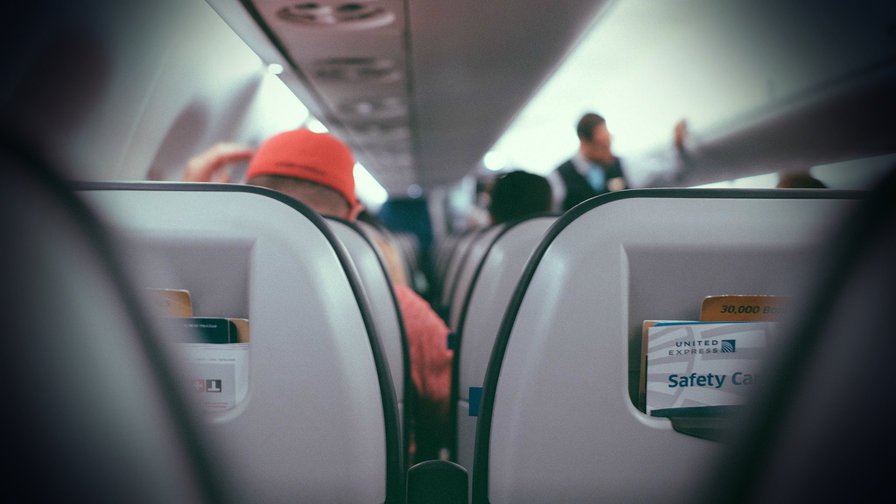Exposure Of Secret TSA Surveillance Program Nets The Government More Terrorist Watchlist Litigation
 Image Source: Pixabay, Creative Commons
Image Source: Pixabay, Creative Commons
The recent exposure of the TSA's "Quiet Skies" program by the Boston Globe is leading to more terrorist watchlist litigation. The "Quiet Skies" program sends air marshals all over the US to watch travelers swallow, shop, use the restroom, and stare at things. It's suspicionless surveillance even the air marshals disagree with, with some quoted by the Globe calling the program a worthless waste of tax dollars, if not just a vehicle for repeated Constitutional violations.
The Council of American-Islamic Relations (CAIR) is using this information in two of its lawsuits against the government. Its lawsuit against the Terrorist Screening Center -- which originated in 2016 -- will hopefully be aided by the Globe's reporting. A motion to compel discovery [PDF] seeks details on the program for use in this litigation. The filing notes the government continues to hide information about its many watchlists from the plaintiffs it represents, forcing it to rely on leaked documents to obtain information it has already requested from the government.
Throughout discovery, Plaintiffs have sought to determine, at the very least, the broad outlines of the watchlisting system. And yet, throughout discovery, Defendants have kept TSA’s Quiet Skies program hidden. Even though all indicators show that Quiet Skies is responsible for engulfing thousands of innocent Americans within the watchlisting system, the program appears in no document produced to Plaintiffs nor in any answers to Plaintiffs’ discovery questions. It was conveniently left out and not referenced; deposition questions which would have unmasked it were blocked. With this latest news, the Court should conclude that Defendants continue to improperly withhold basic watchlist information.
The motion points out this exposed secret watchlist likely explains the actions observed by one of its clients -- a possible "Quiet Skies" target -- when traveling. (It should be noted that fliers noticing they're being tailed by someone is also considered suspicious activity, especially if the flier does anything to ditch the tail or otherwise expose the surveillance.)
Plaintiff El-Shwehdi reports that once at JFK he was “shadowed” by what appeared to be a plainclothes security officer. The man followed him “with a clipboard with some paper” from “near the ticket counter,” through security, continuing while El-Shwehdi put back on his belt and shoes, and kept up the monitoring for the next “two hours” in the boarding area. The plainclothes man even tailed El-Shwehdi when he went to the bathroom, and when he went to get soup. These detailed descriptions of constant monitoring by an undercover officer map precisely onto Quiet Skies.
CAIR's new lawsuit over terrorist watchlists targets a few dozen government officials and agencies, including the FBI, DHS, TSA, TSC (Terrorist Screening Center), DOJ, and CBP. The complaint [PDF] alleges the government engages in routine suspicionless surveillance of US citizens and lawful residents, resulting in a number of harmful outcomes, including a lifetime of government snooping and severe curtailment of personal freedoms.
Through their watchlisting system, the federal government makes it known— to every law enforcement agency in the country, every part of the federal government, more than 60 foreign countries, an unknown number of private companies, international bodies, and other third parties—that the Plaintiffs should be treated as dangerous threats. The Plaintiffs’ friends, family, and others with whom the Plaintiffs associate are punished for their relationship with a watchlisting system’s target.
The Defendants know that their watchlisting system has never prevented an act of terrorism inside the United States and is completely ineffective, but they continue to expand it anyways.
Plaintiffs and almost all others targeted by the watchlisting system have never been arrested, charged, or convicted of any type of terrorism-related offense. Nonetheless, the federal government has designated them as “known or suspected terrorists,” wreaking havoc on Plaintiffs’ personal, religious and professional lives.
Stuff that's legal for Americans to do -- traveling to the Mideast, speaking Arabic, worshiping at mosques -- are all considered suspicious activities by those running the watchlists. This must be discriminatory behavior since it certainly isn't justified by any paperwork or research the government's been able to produce.
Leaked government documents as well as public governmental reports, reveal that the federal government’s terrorist watchlisting system is discriminatory, standardless, and devoid of adequate procedures. These documents include the March 2013 Watchlisting Guidance (Exhibit 1), the Directorate of Terrorist Identities (DTI): Strategic Accomplishments 2013 (Exhibit 2), the Department of Justice's March 2014 Audit of the Federal Bureau of Investigation's Management of Terrorist Watchlist (Exhibit 3), and a 2018 informational bulletin on the “Quiet Skies” program (Exhibit 4).
The fact that watchlisting radiates outward from targets means children, relatives, friends, business associates, and fellow worshipers may all be added to the government's lists simply because they have frequent contact with a target. This creates exponential expansions of watchlists with each new "connection" added, all without individual, particularized suspicion.
Recourse for targeted travelers is limited and restricted to border crossings. For those targeted and traveling from place to place in the US, there's no way to challenge the TSA's "Quiet Skies" watchlist placement. And, as the lawsuit notes, the government hasn't been forthcoming about its many watchlists, so those suing may be on others they can't even begin to challenge because no one has acknowledged their existence.
This is an extremely unfortunate state of affairs for a country that used to welcome immigrants from around the world and held itself up as the standard bearer for personal freedoms. Capitalizing on a horrific tragedy, the government as a whole has used the specter of terrorism to amass and consolidate power. The multiple secret watchlists compiled without articulable suspicion is only one symptom of the country's failure to handle a terrorist attack in a manner befitting the leader of the free world.



